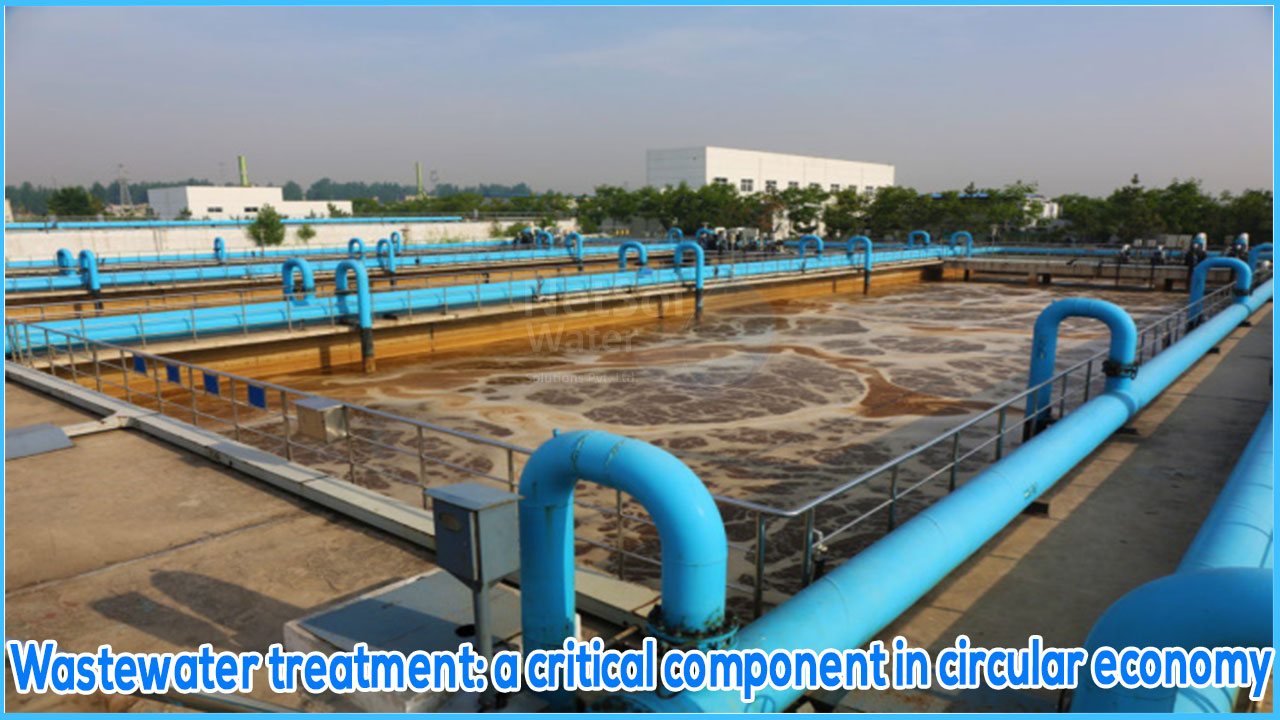The circular economy (CE) is a concept in which products, materials (including raw materials), and trash are viewed as secondary raw materials that can be recycled and re-used. This sets it apart from a linear economy based on the "take-make-use-dispose" approach, in which trash is typically the final stage of the product life cycle. CE is a concept that supports sustainable material and energy management by reducing waste output and repurposing it as a secondary material.Due to the integration of energy generation and resource recovery during clean water production, urban wastewater treatment plants can be an important aspect of circular sustainability.
Due to the combination of energy generation and resource recovery during clean water production, urban wastewater treatment plants (WWTPs) can be an important aspect of circular sustainability. WWTPs will become "ecologically sustainable" technology systems in the near future. However, over the last 25 years, a number of key factors have emphasised the importance of recovering the resources found in wastewater. Global nutrient needs, as well as the recovery of water and energy from wastewater, are the primary drivers of the wastewater industry's growth.
Humans excrete 20% of the mineral phosphorus they consume, it is also projected that excreta streams might provide enough phosphorus to serve the mineral phosphorus market (including domestic animals).Potassium has not had the same economic impact on farming as phosphorus, but it could be fully served from waste streams, whereas nitrogen market on the level of proceedings of 50 percent could be entirely serviced from waste streams. Furthermore, WWTP wastewater can be recycled for agricultural, industrial, and other useful purposes, reducing the need for potable water. The majority of WWTPs are built to meet effluent quality regulations without taking energy into account.
Resources Recovery at Wastewater Treatment Plant
Recovery of Nutrients
Nutrient recycling from WWTPs has a good influence on the environment since it reduces the demand for conventional fossil-based fertilisers and, as a result, reduces water and energy consumption. Raw wastewater, semi-treated wastewater streams, and sewage sludge (biosolids) can all be used to recover nutrients. The oldest way of using wastewater treatment by-product as a fertiliser is land application of biosolids, which entails spreading biosolids on the soil surface or injecting them into the soil.
Reuse of Water
Reusing treated wastewater from WWTPs for agriculture and land irrigation, industrial purposes, toilet flushing, and groundwater replenishment is a key component of the current strategy aimed at releasing freshwater for domestic use, improving WWTP effluent quality, and, as a result, improving the quality of river waters used for drinking water abstraction. For many years, it has been known that using treated wastewater for irrigation in agriculture can help to replace farm demand while also reducing local water stress.
Recovering Energy
Energy recovery at wastewater treatment plants is a key policy tool for ensuring long-term sustainability. Biogas production, heat pumps in treatment plant effluents, and heat exchanger energy recovery from various high temperature streams are all options.
Additional Resources
The use of sewage sludge in building is completely consistent with the CE assumptions. The ash from sewage sludge can be utilised to make building materials such as bricks or tiles. It can also be utilised as a raw ingredient for cement, concrete, mortal, and lightweight materials, among other things.
The goal of circular economics is to optimise circle system functions by reducing resources exiting the system. Moving toward greater CE can assist to meet the resource efficiency goals set forth in the Strategy for Smart, Inclusive, and Sustainable Growth. For optimal sustainable development, smart cities concept is a pragmatic and balanced blend of social, economic, ecological, and other key fields. "To increase the well-being of residents and society through integrated urban planning and management that fully leverages the benefits of ecological systems, and protects and nourishes these assets for future generations," Ecological Cities International says.



